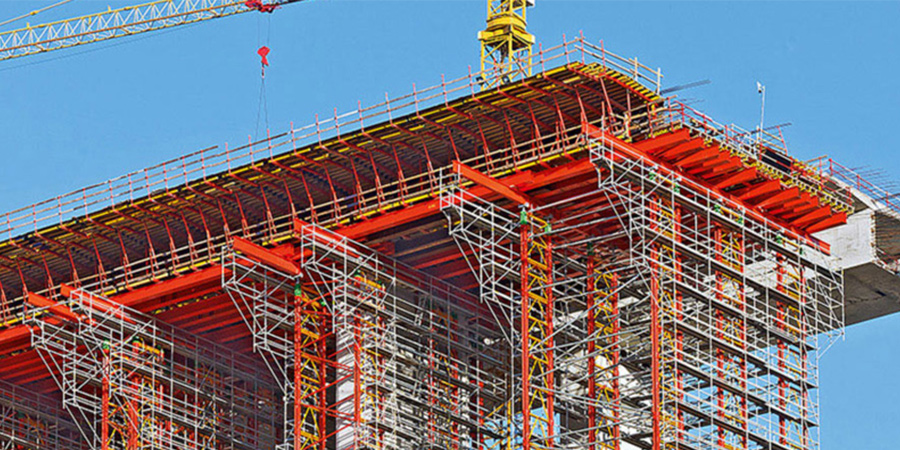Choosing the Right Scaffolding Supplier: What to Look For


Selecting the right scaffolding supplier is crucial for ensuring the quality, safety, and efficiency of your construction projects. A reliable supplier can provide high-quality products, excellent customer service, and essential support. Here’s a guide to help you choose the right scaffolding supplier:
Reputation: Research the supplier’s reputation in the industry. Look for reviews, testimonials, and case studies that highlight their experience and reliability. A supplier with a strong reputation is more likely to offer quality products and services.
Experience: Consider the supplier’s experience in the scaffolding industry. An experienced supplier will have a deep understanding of various scaffolding systems, safety standards, and project requirements.
Quality: Ensure that the scaffolding products offered by the supplier meet industry standards and regulations. Check for certifications and quality assurance processes that guarantee the durability and safety of the scaffolding.
Product Range: Evaluate the supplier’s product range to ensure they offer the types of scaffolding you need for your projects. This includes supported scaffolds, suspended scaffolds, modular systems, and specialized scaffolding solutions.
Customization: Determine if the supplier can provide customized scaffolding solutions tailored to your specific project requirements. Customization may be necessary for complex or unique projects.
Safety Standards: Verify that the scaffolding products comply with relevant safety standards and regulations. This includes OSHA, ANSI, or other local and international safety standards.
Inspection and Maintenance: Choose a supplier that offers regular inspection and maintenance services for their scaffolding products. This helps ensure that the scaffolding remains safe and in good condition throughout its use.
Training and Certification: Check if the supplier provides training and certification programs for scaffolding assembly and safety. Proper training is essential for preventing accidents and ensuring safe use of scaffolding.
Customer Support: Evaluate the level of customer support provided by the supplier. Look for a supplier that offers responsive and helpful support, including assistance with product selection, installation, and troubleshooting.
Technical Assistance: Ensure that the supplier provides technical assistance and guidance for complex scaffolding projects. Access to experienced professionals can help resolve issues and optimize scaffolding use.
After-Sales Service: Consider the after-sales services offered by the supplier, including warranty coverage, repair services, and spare parts availability. Reliable after-sales support is important for maintaining scaffolding performance.
Pricing: Compare pricing among different suppliers to ensure you’re getting a competitive rate. Be cautious of suppliers offering significantly lower prices, as this may indicate lower quality or hidden costs.
Value for Money: Assess the overall value for money, considering factors such as product quality, safety features, and support services. Sometimes a higher initial cost may be justified by better quality and service.
Rental vs. Purchase: Determine whether you need to purchase or rent scaffolding. Some suppliers offer both options, so choose a supplier that provides flexibility based on your project needs and budget.
Delivery Times: Check the supplier’s delivery times and ensure they can meet your project schedules. Timely delivery is crucial for keeping your project on track.
Logistics Support: Evaluate the supplier’s logistics support, including transportation, assembly, and setup services. Efficient logistics can help streamline the scaffolding process and minimize delays.
Local vs. National: Consider whether you prefer a local supplier for quicker response times and easier communication, or a national supplier with a broader range of products and services.
Sustainability: Choose a supplier that follows environmentally friendly practices and uses sustainable materials. This aligns with green building practices and reduces the environmental impact of your projects.
Waste Management: Inquire about the supplier’s waste management practices, including recycling and disposal of old scaffolding materials. Effective waste management contributes to a more sustainable construction process.
References: Request references from the supplier’s previous clients to gain insights into their reliability and performance. Speaking with past customers can provide valuable information about their experience.
Case Studies: Review case studies or project examples provided by the supplier. This can help you understand how they have handled similar projects and their capability to meet specific needs.
Innovation: Look for a supplier that embraces innovation and offers advanced scaffolding solutions. Modern scaffolding technologies can improve safety, efficiency, and adaptability.
Technology Integration: Consider suppliers that use technology to enhance their products and services, such as digital design tools, real-time monitoring systems, or automated scaffolding solutions.
Contract Terms: Review the terms and conditions of the supplier’s contracts and agreements. Ensure that the terms are clear and fair, including aspects related to pricing, delivery, and service levels.
Flexibility: Check for flexibility in the contract to accommodate changes or adjustments in project requirements. A supplier that offers adaptable terms can better meet evolving project needs.
Choosing the right scaffolding supplier involves evaluating their reputation, product quality, safety standards, customer service, and overall value. By considering these factors and conducting thorough research, you can select a supplier that meets your project needs and ensures a successful outcome. Prioritizing quality, support, and reliability will help you achieve safer and more efficient scaffolding solutions for your construction projects.